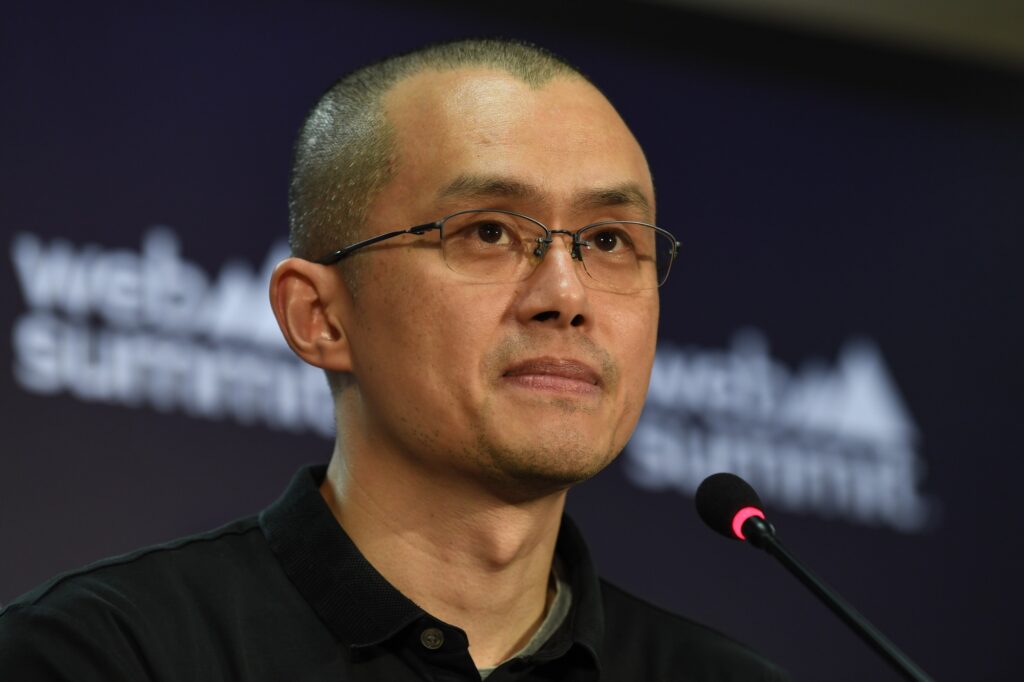Changpeng “CZ” Zhao was sentenced to four months in prison for involvement in Binance’s illegal activity; the judge acknowledges charity work and acceptance of responsibility while downplaying foreknowledge of crimes.

Changpeng “CZ” Zhao, a contrite individual, has received a four-month federal prison sentence for his ostensibly minor involvement in the illicit operations at Binance, the cryptocurrency exchange he established in 2017.
U.S. District Judge Richard Jones in Seattle emphasized CZ’s numerous philanthropic contributions and willingness to assume responsibility while downplaying the possibility that CZ knew Binance was committing crimes on purpose.
Although the sentence exceeds the maximum house arrest that CZ’s attorneys had negotiated, it is still lower than the official sentencing guidelines (approximately one year) and the 36 months sought by U.S. Department of Justice prosecutors. The precise reason why CZ was given the sentence that he did is unknown.
However, CZ voluntarily appeared in the United States to stand trial instead of resisting extradition. The outcome is the most recent indication that cooperation is paramount when apprehending a criminal.
This is the straightforward conclusion that can be derived from comparing CZ to Sam Bankman-Fried, the fraudulent founder and founder of rival exchange FTX.
Bankman-Fried received a 25-year prison sentence in March and never genuinely admitted to stealing client funds worth billions of dollars. CZ was not charged with customer theft; it was criticized for neglecting to establish the requisite compliance infrastructure customary for a money transmitter.
Twenty years ago, Martha Stewart, who was convicted of conspiracy and obstruction of justice but maintained her innocence and even compared herself to Nelson Mandela, exhibited no contrition, which is prehistoric or pre-crypto. She was incarcerated for five months, which is one month longer than CZ.
It is noteworthy that Zhao, apart from serving a prison sentence in Washington State, also complied with the substantial $4.3 billion settlement agreement paid by Binance by paying a $50 million fine.
Co-founder of the public service nonprofit Better Markets, Dennis Kelleher, asserts that the comparatively brief sentence demonstrates that “crime pays.” Zhao will retain his ownership interest in Binance, the preeminent cryptocurrency exchange globally in terms of trading volume and substantial personal wealth.
Attorney for the DOJ Kevin Mosley echoed this sentiment: “His intention was not to generate as much revenue as possible; rather, it was to violate U.S. law.” “Lawbreaking was an essential component of that undertaking.”
Regardless of one’s assessment of the appropriateness of the punishment for the offense, Zhao’s courtroom appearance was disclosing. Zhao, despite his considerable impact, has led a predominantly personal existence. I, for one, was not informed that the former executive was accompanied to Zhao’s sentencing hearing by a son of college age who sat beside his mother and nephew. In dozens of letters praising Zhao’s character, he was characterized as a “family man.”
Zhao’s testimony throughout the case underscored his guilt for his deeds (and omissions) and his readiness to accept accountability for errors committed during his tenure as the leader of Binance. However, the judge supervising SBF’s case remarked that SBF never expressed “remorse verbally for the commission of heinous crimes.”
Not only did CZ acquiesce to the demands of the United States government, but Binance also bowed the knee. Binance, an organization that previously boasted about lacking a physical headquarters, has consented to appoint an “independent compliance monitor” to supervise platform transactions for the following three years.
The information could be of immense value to law enforcement agencies attempting to apprehend perpetrators utilizing blockchain technology.
